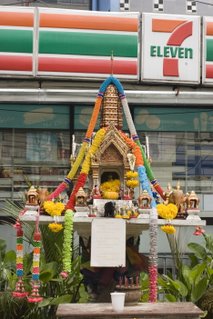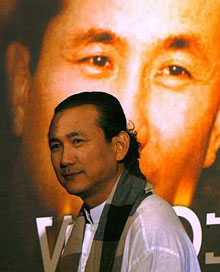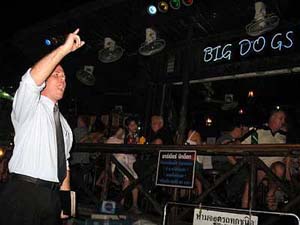Inside the shrine, which resembled a Thai-style wooden house, were two 10cm-tall figurines of an old man and an old woman. Porcelain miniatures of elephants, horses and servants, and offerings of a can of Fanta Red, candies and sliced betel nuts were placed outside this shrine.
Next to it was a shrine that resembled a pint-sized Khmer temple. It housed pra chaimongkon, a 15cm-high golden angel figurine holding a moneybag and a sword.
On the compound of Evergreen View Tower Condominium in Bangna, a Bangkok suburb, Wanida Yahata, who was a few footsteps away from her workplace, stopped in front of the shrines. She pressed her palms together near her chest and bowed to them.
“(An uninitiated foreigner) wonders why Thais have this little dollhouse in front of every building and why they pray to it,” noted American Marisa Cranfill, who is in the midst of pre-editing a book titled, Invoking the Land Gods; Understanding the Thai Spirit House.
Mysterious? Perhaps that was why the Beckhams in their June 2003 visit to Thailand bought several spirit houses and had them shipped to England.
The spirit house with the angelic figurine was called san pra poom. And Thais paid reverence to the golden angel.
“They see it as a benevolent compassionate force that will bestow its grace and goodness to them,” Cranfill said.
The spirit house with the old couple was called san jao thi phoon. It housed the land god.
“The Thais' relationship with the land god is very personal because it affects their daily life,” Cranfill explained. “You give the land god what it likes and it will give back good things. It is like a bargain.”
Cranfill was 16 years old when she became fascinated with spirit houses.
“I liked the way they looked,” said the American who has travelled constantly to Thailand since she was 12. Her mother owned a silk business in Bangkok.
“This blend is what makes spirit houses so mysterious yet so fascinating,” said Cranfill.
When the real estate industry in Thailand is booming, the spirit house-making industry also thrives.
(Published in The Star on Nov 26, 2006. Photograph courtesy of Frank A. Fuller)







